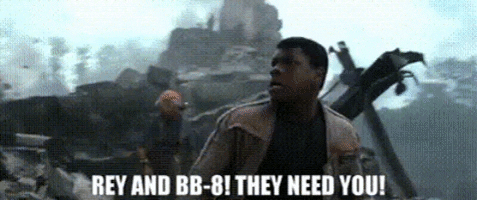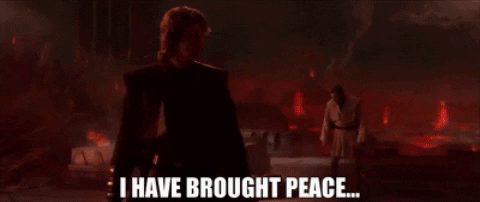

There is a maze in The Desert carved from sand and rock.
A vast labyrinth of pathways and corridors a hundred miles long, a thousand miles wide, full of twists and dead ends.
Picture it a puzzle.
You walk, and at the end of this maze is a prize just waiting to be discovered.
All you have to do is find your way through.
Can you see The Maze?
Its walls and floors, its twists and turns?
Good, because The Maze you've created in your mind is itself the maze.
There is no desert, no rock or sand.
There is only the idea of it.
But it's an idea that will come to dominate your every waking and sleeping moment.
You're inside The Maze now.
You cannot escape.
Welcome to madness.

JOSEPH CAMPBELL (reading):
“The animal envoys of the Unseen Power no longer serve, as in primeval times, to teach and to guide mankind. Bears, lions, elephants and gazelles are in cages in our zoos. Man is no longer the newcomer in a world of unexplored plains and forests, and our immediate neighbors are not wild beasts, but other human beings contending for goods and space on a planet that is whirling without end around the fireball of a star. Neither in body nor mind do we inhabit the world of those hunting races of the Paleolithic millennia, to whose lives and lifeways we nevertheless owed the very forms of our bodies and structures of our minds.
Memories of their animal envoys still must sleep, somehow, within us, for they wake a little and stir when we venture into wilderness. They wake in terror to thunder. And again they wake with a sense of recognition when we enter any one of those great painted caves. Whatever the inward darkness may have been to which the shamans of those’ caves descended in their trances, the same must lie within ourselves nightly visited in sleep.”

BILL MOYERS:
When we look at the magnificent cave paintings left by our primal ancestors, we realize how the hunters of those early tribes were influenced by their natural surroundings, and by their feelings toward the animals they depended on for food religious feelings. They told stories to themselves about the animals, and about the supernatural world to which the animals seemed to go when they died. And the hunters performed rituals of atonement to the departed spirits of the animals, hoping to coax them hack to be sacrificed again.
Joseph Campbell devoted his life to the study of these myths and rituals. For him, mythic stories were not simply entertaining tales to be told for amusement around ancient campfires, they were powerful guides to the life of the spirit. Campbell’s odyssey as scholar and teacher led him from the exhibits at the American Museum of Natural History, which impressed him as a boy, to cultures all over the world. In his words, “Whether we listen with aloof amusement to the mumbo jumbo of some witch doctor of the Congo, or read with cultivated rapture translations from sonnets of Lao-tze, or now and again crack the hard nutshell of an argument of Thomas Aquinas, or catch suddenly the shining meaning of a bizarre Eskimo fairy tale, we’re hearing echoes of the first story.”
In this hour, one of the many I taped with Joseph Campbell during the last two years of his life, we talked about our relationship to the first stories and to the people who told them. Like them, we too perform rituals to enact what we believe about the world beyond this one, and we try to bring our mind into harmony with questions of immortality and our body with its destiny of death.

Email to the Universe
Selected quotes . . .
Dreams of flying appeared in the collective unconscious before the reality of flight existed in technology, and I suspect that if we understood our dreams better we would use our technology more wisely . . .
I suggest that we contemplate what our children look at every Saturday morning on TV. One of the most popular jokes in animated cartoons shows the protagonist walking off a cliff, without noticing what he has done. Sublimely ignorant, he continues to walk - on air - until he notices that he has been doing the "impossible," and then he falls . . .
Daedalus who, imprisoned in a labyrinth (conventional "reality"), invented wings and flew away, over the heads of his persecutors; and Icarus, the son of Daedalus, who flew too close to the Sun Absolute and fell back to Earth. Like Porky Pig walking off a cliff, Icarus' fall contains a symbolism many have encountered in their own dreams . . .
Daedalus means "artist" in Greek . . . Daedalus, inventor of wings that took him from Earth to Outer Space - why does he represent Art, instead of Science? . . .
The genius of an artist, Aristotle says, lies in his texne, the root from which we get our word "technology"; but texne basically means skill or craft, or the ability to make things that never existed before. Negative entropy, i.e., information . . .
The musician and the architect, the poet and the physicist -- all inventors of new realities -- all such Creators may be best considered late evolutionary developments of the type that first appears as the shaman.
Please remember that shamans in most cultures are known as "they who walk in the sky," just like our current shaman-hero, Luke Rey Skywalker.
The ironies of Swift and Aristophanes, and the myths of the fall of Icarus and Donald Duck, indicate that the collective unconscious contains a force opposed to our dreams of flight. This appears inevitable . . .
But what if we begin to regrow healthy organs of Poetic Imagination and flight? What if we "put on wings and arouse the coiled splendor within," as Liber Al urges? . . .
Joyce did not name his emblematic Artist merely Daedalus, but Stephen Daedalus -- after St. Stephen the Protomartyr, who reported a Vision and was stoned to death for it . . .
Those of us who have no avocation for martyrdom must learn, when we realize how much neophobia remains built into the contraptions of "society" and "the State," the art of surviving in spite of them. In a word, we must "get wise" in both the Socratic meaning of the phrase and in the most hardboiled street meaning. Neophobia functions as an Evolutionary Driver, forcing the neophiliac to get very smart very fast."





Uncle Gutenberg was a bookworm
And he lived on Charing Cross
The memory of his volumes brings a smile
He would read me lots of stories
When he wasn't on the sauce
Now I'd like to share the wisdom
Of my favourite bibliophile
He said a-
Cover is not the book
So open it up and take a look
'Cause under the covers one discovers
That the king may be a crook
Chapter titles are like signs
And if you read between the lines
You'll find your first impression was mistook
For a cover is nice
But a cover is not the book
Ta-ru-ra-lee, ta-ra-ta-ta-ta!
Ta-ru-ra-lee, ta-ra-ta-ta-ta!
Mary Poppins, could you give us an example?
Certainly!
Nellie Rubina was made of wood
But what could not be seen was though
Her trunk up top was barren
Well, her roots were lush and green
So in Spring when Mr Hickory saw her blossoms blooming there
He took root despite her bark
And now there's seedlings everywhere
Which proves
A cover is not the book
So open it up and take a look
'Cause under the covers one discovers
That the king may be a crook
Chapter titles are like signs
And if you read between the lines
You'll find your first impression was mistook
For a cover is nice
But a cover is not the book
Should we do the one about the wealthy widow?
Oh, by all means!
Always loved that one
Well, go on then!
Lady Hyacinth Macaw
Brought all her treasures to a reef
Where she only wore a smile
Plus two feathers, and a leaf
So no one tried to rob her
'Cause she barely wore a stitch
For when you're in your birthday suit
There ain't much there to show you're rich!
Oh, a cover is not the book
So open it up and take a look
'Cause under the covers one discovers
That the king maybe a crook
Ta-ru-ra-lee, ta-ru-ra-la, ta-ru-ra-lee, ta-ra-ta-ta!
You'll find your first impression was mistook (Ya-da-da-da)
For a cover is nice
But a cover is not the book
Oh, give us the one about the dirty rascal, why don't ya?
Isn't that one a bit long?
Well, the quicker you're into it, the quicker you're out of it
Once upon a time
In a nursery rhyme
There was a castle with a king
Hiding in a wing
'Cause he never went to school to learn a single thing
He had scepters and swords
And a parliament of lords
But on the inside he was sad
Egad!
Because he never had a wisdom for numbers
A wisdom for words
Though his crown was quite immense
His brain was smaller than a bird's
So the queen of the nation
Made a royal proclamation:
"To the Missus and the Messers
The more or lessers
Bring me all the land's professors"
Then she went to the hair dressers
And they came from the east
And they came from the south
From each college they poured knowledge
From their brains into his mouth
But the king couldn't learn
So each professor met their fate
For the queen had their heads removed
And placed upon the gate
And on that date
I state their wives all got a note
Their mate was now the late-great
But then suddenly one day
A stranger started in to sing
He said, "I'm the dirty rascal
And I'm here to teach the king"
And the queen clutched her jewels
For she hated royal fools
But this fool had some rules
They really ought to teach in schools
Like you'll be a happy king
If you enjoy the things you've got
You should never try to be
The kind of person that you're not
So they sang and they laughed
For the king had found a friend
And they ran onto a rainbow for
The story's perfect end
So the moral is you musn't let
The outside be the guide
For it's not so cut and dried
Well unless it's Dr. Jekyll
Then you better hide, petrified!
No, the truth can't be denied
As I now have testified
All that really counts and matters
Is the special stuff inside
He did it!
Oh, a cover is not the book
So open it up and take a look
'Cause under the covers one discovers
That the king may be a crook
So please listen to what we've said
And open a book tonight in bed
So one more time before we get the hook
Sing it out strong!
A cover is nice
Please take our advice!
A cover is nice
Or you'll pay the price!
A cover is nice
But a cover is not the book
Ta-ru-ra-lee, ta-ru-ra-la-la
Ta-ru-ra-lee, ta-ru-ra-la-la
Ta-ru-ra-lee, ta-ru-ra-la-la, la, la!
Written by: Scott Wittman, Marc Shaiman
Lyrics © WALT DISNEY MUSIC COMPANY


